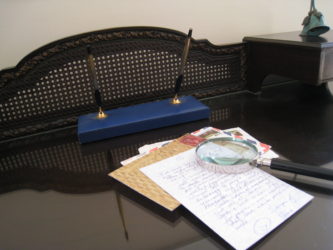The secular book club, or reading discussion group, is a long-standing American tradition, dating back to the late 18th century. Earlier versions of reading groups were generally religious oriented. Today, 88% of participants in private book clubs are women, almost two thirds of whom have advanced degrees. Women today account for 80% of all fiction sales.
There are many forms of book clubs. Publishers of popular books sometimes will include a discussion guide, printed in the book itself. There are national reading groups, touting specific books recommended by celebrities, such as Oprah or Reese Witherspoon. There are local book clubs, open to anyone who wants to join, sponsored by libraries and other community organizations. Some book clubs operate on a pay-to-join basis. But most commonly, book clubs are organized by self-selected groups of individuals who get together on a regular basis to read and discuss a book, perhaps chosen by members on a rotating basis.
Although I have always been an avid reader, I am not a longstanding book club member. This is not due to lack of interest, but rather the past limitations of time due to being a working parent, co-managing a household and raising children. As a public librarian, I always had access to early reviews and new books. Many discussions took place with my colleagues, including casual discussions and reading recommendations, rather than being tied to a book club schedule. But many of my friends love their book clubs, often meeting with friends they have known and met with for multiple decades.
This brings to mind the lovely social comedy novel by Karen Joy Fowler, The Jane Austen Book Club (2004). In the novel, five women and one man in California’s Central Valley meet monthly over a period of six months to discuss the novels of Jane Austen. In it, the lives of the participants often mimic the characters in the book they are reading. The novel was memorialized in a film by the same title in 2007.
My earliest dip into the waters of book discussion groups was through a local group sponsored by the Great Books Foundation. A group of men and women met in a private home in the beautiful Forest Hill neighborhood of San Francisco to read and discuss classic literature. According to the website, the mission of Great Books is “to advance the critical, reflective thinking and social and civic engagement of people of all ages through shared inquiry discussion of works and ideas of enduring value.” The shared inquiry concept, while academic in nature, is foundational to organized book discussions.
Recently, I joined a different type of book club, a virtual reading and discussion group sponsored by my university alumni association. The number of UC Berkeley alumni who are members of the alumni association is daunting, but the book group narrows it down to people over a broad range of classes who are drawn to a virtual book club. I read and enjoyed the first two selected titles and subsequent online discussion. It is not the same as meeting with a group in person, but the range of selected titles and diverse reactions create a whole different type of experience.
What books have you read and discussed through a book club? Please share your ideas and recommendations through comments to this post. Happy reading!



